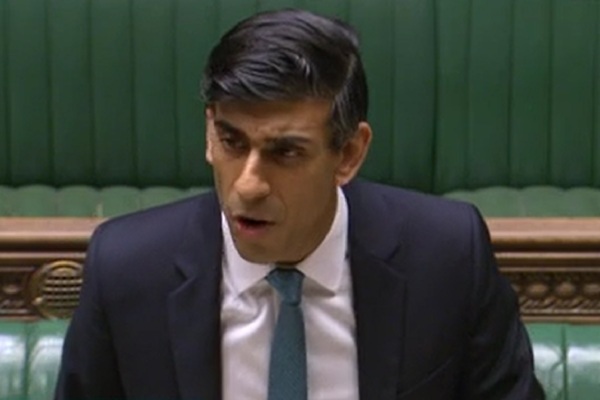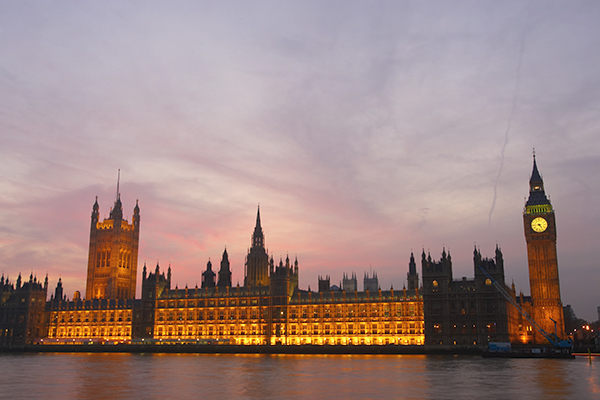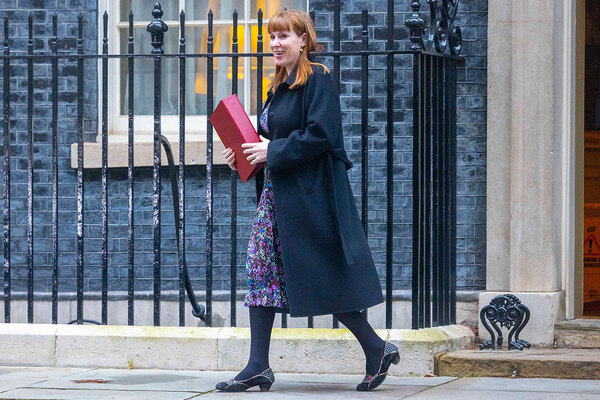Budget 2021: Sunak confirms help for first-time buyers and Universal Credit uplift extension
Chancellor Rishi Sunak has confirmed plans for a new mortgage guarantee scheme to help first-time buyers and extended the £20 uplift in Universal Credit for another six months.
In today’s Budget, as expected, the chancellor also extended the stamp duty holiday for another three months and the furlough scheme until September.
The new mortgage guarantee scheme, to be launched next month, will give a guarantee to lenders to offer mortgages to buyers with a five per cent deposit on homes worth up to £600,000. Mortgages of this nature had “virtually disappeared” during the pandemic, the Treasury said last week.
On the stamp duty holiday, which was first introduced last summer, no tax will be paid on properties worth up to £500,000 that are sold before 30 June.
After that the ‘nil rate’ will apply to properties sold for £250,000 until the end of September, before returning to the normal level of £125,000 from 1 October.
Mr Sunak also confirmed plans to extend the temporary £20-a-week hike in Universal Credit for another six months after facing huge political pressure for it to be continued.
The furlough scheme – which pays 80 per cent of employees’ income for the hours they are not working – will be extended until the end of September. Measures to help the self-employed were also renewed and extended.
Many housing association have been faced with an uptick in rent arrears during the COVID-19 crisis. Last week, ratings agency Moody’s warned that any withdrawal of job retention schemes would mean a further increase in arrears for landlords as more people face unemployment.
The full Budget document also revealed plans for a new modern methods of construction (MMC) taskforce to “accelerate delivery of MMC homes”.
Backed by £10m of initial funding the taskforce will be based at the Ministry of Housing, Communities and Local Government’s new offices in Wolverhampton and include “world-leading experts from across government and industry”, the document said.
Mr Sunak did not mention the cladding and building safety crisis. Housing secretary Robert Jenrick last month unveiled an extra £3.5bn – on top of £1.6bn already announced – to help fix high rises with dangerous cladding.
Sector reaction
Fiona Fletcher-Smith, chief executive of G15 landlord L&Q, welcomed the announcements to help housebuyers and workers. “As a charitable organisation our priority will always be social rented housing, but we fully appreciate that many people aspire to homeownership,” she said. “Today’s announcements about the mortgage guarantee scheme and extending the stamp duty ‘holiday’ are very welcome.”
Ms Fletcher-Smith added: “We are also very pleased that the chancellor has extended the furlough scheme and the uplift to Universal Credit. Coupled with additional investment in apprenticeships and traineeships, this will be a timely boost for many of our residents who have struggled during the pandemic.”
However Ms Fletcher-Smith said the building safety crisis is the “biggest challenge facing our sector”.
L&Q has committed £250m to building safety works, but Ms Fletcher-Smith said that “as a registered charity we cannot shoulder the full costs of remediation, particularly for buildings we did not build”.
She added: “We would welcome further government support to protect leaseholders and housing associations.”
The G15 group of London landlords also welcomed the news on Universal Credit in a tweet. "This will give greater security to people on low incomes by protecting them from falling into hardship," it said. "It will also help support local economies and ensure people and places are in a stronger position to contribute to the post-pandemic recovery."
Kate Henderson, chief executive of the National Housing Federation said: "Housing associations see every day how the Universal Credit uplift provides much needed relief for those living on the lowest incomes - so its short-term extension is welcome.
"This extra £20 a week helps families buy enough food to feed themselves and pay their rent. That said, we are concerned that families and children will face the same risk of financial hardship in six months’ time, when the effects of the crisis will still be felt."
James Prestwich, director of policy and external affairs at the Chartered Institute of Housing said the group would have liked to have seen a bigger focus on a housing-led recovery. "We believe this represents the best way for government to drive growth, help meet its ambitious climate change targets, create highly skilled jobs and alleviate the chronic housing shortage," he said.
On Universal Credit, he said: "We believe there remains a clear need to sustain the £20 a week Universal Credit uplift beyond the six months announced by the chancellor, and we’ll continue to make the case to government that they should look to mitigate the risk of this ending at a time when the economy is likely to remain fragile."
On measures to help house buyers, he added: "Investment for housing has been focused on helping people into home ownership with a guarantee for 95 per cent mortgages that will be welcome for those able to afford that option, but will not assist the many households unable to make the step into homeownership or those living in the rented sector."
Nicholas Harris, chief executive of Stonewater, said the stamp duty extension would be a “huge relief” to those in the process of buying. He branded the new mortgage guarantee scheme as “positive news for potential buyers, particularly as it is not restricted to new homes”.
He also welcomed the measures on Universal Credit and the furlough scheme. “We have 7,500 verified customers who are recipients of Universal Credit,” he said. “The government’s roadmap outlines that we may not return to some form of normality, with everyone being able to return to work properly until summer.
“We know that many Stonewater customers will be reassured to know that the additional financial support, either from the furlough retention scheme or Universal Credit, will be extended in the meantime."
RELATED






